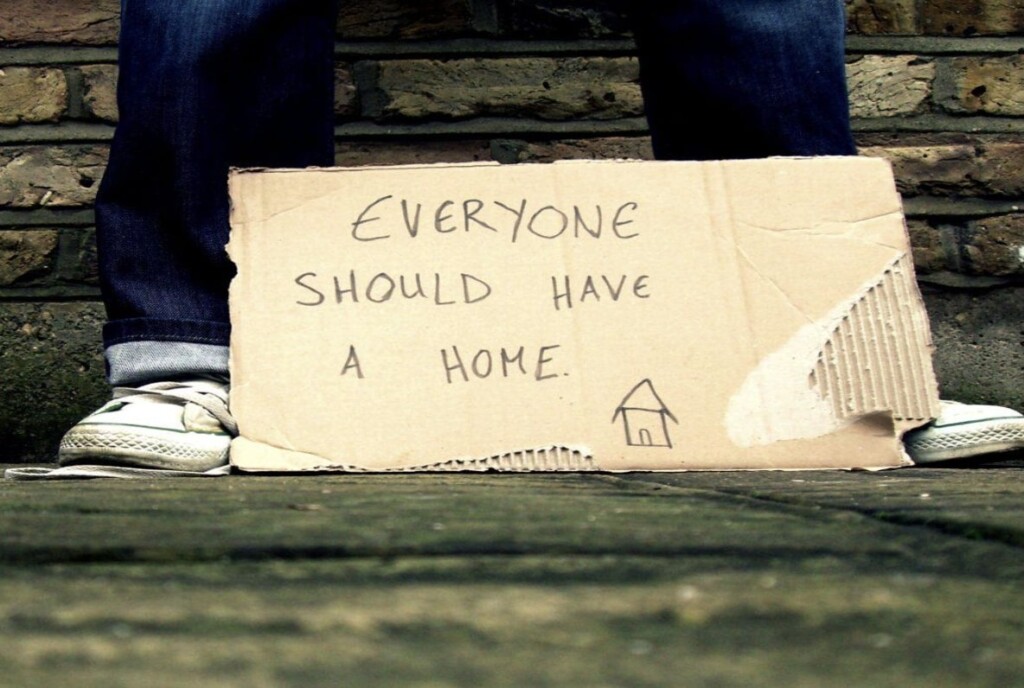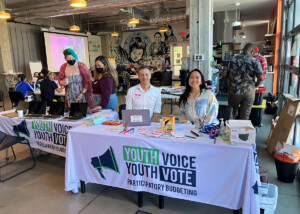Family Promise: Ensuring Every Student Has A Home
Key Points
-
We lean on our educational system to be everything for our children. It is time for service providers to step up to provide positive experiences to help the child thrive.

Many homeless children go to school. HUD released on December 15 the 2023 Annual Homeless Assessment Report (AHAR), Part 1, which provides estimates of homelessness in the U.S. According to the 2023 report, approximately 653,100 people were homeless on a single night in 2023, representing a 12% increase (or roughly 70,650 more people) from 2022. During the 2020–2021 school year, more than a million students were identified by schools as homeless. Families with children made up nearly 30% of the total homeless population in 2022, with about 51,000 family households experiencing homelessness in one single night. More than 30,000 unaccompanied youth under the age of 25 experienced homelessness in a single night that year, 9% of whom were children.
According to the National Center for Homeless Education, Hawaiian/Pacific Islander, American Indian/Alaska Native, Black, and Hispanic students are overrepresented in homelessness compared with Asian and white students. Additional research has found that populations have a higher risk of homelessness compared with non-LGBT youth. Youth who have faced housing insecurity, severe family conflict, or abuse.
Homelessness and housing instability can contribute to poor health, especially for children and adolescents. Housing and school partnerships offer a promising approach to ending student homelessness.
How Transitional Housing Builds Stable Futures
Transitional housing plays an essential role in providing safety and stability. Equipped with the following benefits, youths experiencing homelessness can break free from this cycle and discover their path.
1. Safe and Stable Housing
Transitional housing provides a vital safety net for homeless youth by ensuring stable and safe accommodations. This type of housing typically offers an independent living space within a supportive environment. This stability is foundational for addressing other areas of their lives, such as education, employment, and overall well-being.
2. Supportive Services
Transitional housing programs are not just about providing a bed for the night. They offer comprehensive supportive services tailored to each youth’s unique needs. Social workers, counselors and mentors traditionally work closely with youth to set goals, create individualized plans, and connect them with the necessary resources for personal growth.
3. Skill Development
Transitional housing also goes beyond addressing immediate needs like food and shelter. These programs promote self-sufficiency and self-reliance via essential skills such as budgeting, cooking, communication and problem-solving.
Life skills are vital for a safe and long-term transition to independence. The unique and supportive nature of transitional housing programs provides a structured environment where youth can practice and refine these skills under the guidance of caring professionals.
4. Education and Career Support
Education is often disrupted by youth experiencing homelessness. In America, about 87% of these young people will drop out of school before earning their high school degree – a critical asset for many employers. Transitional housing recognizes the importance of education in breaking the cycle of homelessness.
These programs provide educational support, including tutoring, access to GED programs and help with college applications and scholarships. Additionally, these programs assist youth in exploring career options, building resumes, and preparing for job interviews, providing a path toward economic stability and self-sufficiency.
5. Emotional and Social Well-Being
The experience of homelessness can take a toll on a youth’s emotional and social well-being. Many youths in transitional housing have experienced trauma, abuse, or neglect. These programs offer a safe space for healing and personal growth. Through therapy, support groups and mentorship, youth can address their emotional needs, build resilience, and develop healthy coping mechanisms while connecting with peers who share similar experiences, fostering a sense of belonging and support.
I had the opportunity to meet and work with Jeff Armstrong, the Executive Director of Family Promise, an organization dedicated to helping homeless students get an education and sustainable housing for their families
What is the mission of Family Promise?
Our mission is to help families experiencing homelessness in their quest to achieve sustainable independence. I led the organization in the Midlands of South Carolina but the national Family Promise organization has 200 affiliates across the country.
How do the services Family Promise provide support youth in school?
Our Tomorrow’s Promise program supports students who are part of families having housing stability issues with enrichment activities including athletics, music, and art.
Additionally, we hold community engagement events that include financial literacy, professional developments, and entertaining activities for the entire family.
I had a vision in April 2020 to be able to provide experiences beyond what McKinney-Vento can do for a child in the school system experiencing housing instability. I called this program Tomorrow’s Promise. Whether it is purchasing a dress for prom or covering the costs of gymnastics classes, these positive childhood experiences provide memories that promote resiliency.
What are the biggest misconceptions about families in transition housing?
Homelessness comes with its own stigma. What the pandemic has helped us all realize is how close we could be to housing instability. Our transitional housing program goes far beyond providing a place to stay. There are other supportive services provided that allow for a family to build a savings (many of them for the first time). The families we serve also work to meet goals.
Our families are working hard towards goals that are set by them and our Case Manager. Some may come to us and not have experience living on their own. However, we also serve teachers, nurses, and people from other fields that most would not expect.
What are the greatest needs of the students who you serve?
One word … stability. I always say that providing a safe space for children and parents to move from flight, fight or freeze to stability is the greatest gift.
What can our education system do to help the youth you serve?
We lean on our educational system to be everything for our children. It is time for service providers to step up to provide positive experiences to help the child thrive.
Why did you get involved with Family Promise and what future programs and services do you hope to develop to help the youth you serve be more successful in school?
The opportunity to lead an organization with the experiences I had in my childhood and adolescence proves that the children we serve can do anything. Having experienced homelessness and housing instability, among other challenges, as I was growing up helped me understand what the children in our program need. I will never forget my high school basketball coach and 4th grade teacher who were both instrumental in providing the lessons and care that I needed to build resiliency on my own.
Tomorrow’s Promise Program developed from my childhood. I am looking for us to continue to bolster the types of experiences and events we have with our families. We partner with the faith community, businesses, and other service providers to accomplish this.
Our youth today struggle to balance an immense amount of pressure from many angles. By alleviating the housing instability piece, we are promoting a foundation for the greatest success in the future.
Jeff and the team at Family Promise in partnership with Craig Melvin from the Today Show and his family worked with one family to provide a fully furnished home which is an incredible example of the organization’s focus of ensuring every student has a home!








0 Comments
Leave a Comment
Your email address will not be published. All fields are required.